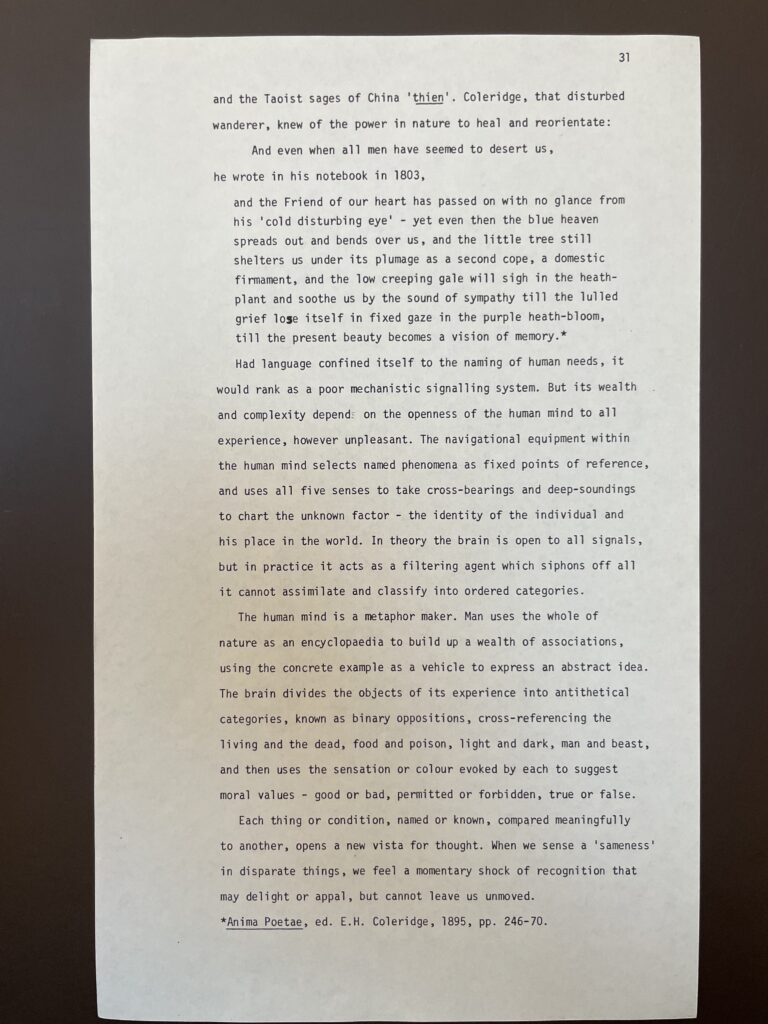The Nomadic Alternative – Page 31
The Nomadic Alternative
Page 31
and the Taoist sages of China ‘thien’. Coleridge, that disturbed
wanderer, knew of the power in nature to heal and reorientate:
And even when all men have seemed to desert us,
he wrote in his notebook in 1803,
and the Friend of our heart has passed on with no glance from
his ‘cold disturbing eye’ – yet even then the blue heaven
spreads out and bends over us, and the little tree still
shelters us under its plumage as a second cope, a domestic
firmament, and the low creeping gale will sigh in the heath-
plant and soothe us by the sound of sympathy till the lulled
grief lose itself in fixed gaze in the purple heath-bloom,
till the present beauty becomes a vision of memory.*
Had language confined itself to the naming of human needs, it
would rank as a poor mechanistic signalling system. But its wealth
and complexity depend: on the openness of the human mind to all
experience, however unpleasant. The navigational equipment within
the human mind selects named phenomena as fixed points of reference,
and uses all five senses to take cross-bearings and deep-soundings
to chart the unknown factor – the identity of the individual and
his place in the world. In theory the brain is open to all signals,
but in practice it acts as a filtering agent which siphons off all
it cannot assimilate and classify into ordered categories.
The human mind is a metaphor maker. Man uses the whole of
nature as an encyclopaedia to build up a wealth of associations,
using the concrete example as a vehicle to express an abstract idea.
The brain divides the objects of its experience into antithetical
categories, known as binary oppositions, cross-referencing the
living and the dead, food and poison, light and dark, man and beast,
and then uses the sensation or colour evoked by each to suggest
moral values – good or bad, permitted or forbidden, true or false.
Each thing or condition, named or known, compared meaningfully
to another, opens a new vista for thought. When we sense a ‘sameness’
in disparate things, we feel a momentary shock of recognition that
may delight or appal, but cannot leave us unmoved.
*Anima Poetae, ed. E.H. Coleridge, 1895, pp. 246-70.
Editor's Note: This text has been transcribed automatically and likely has errors. if you would like to contribute by submitting a corrected transcription.
